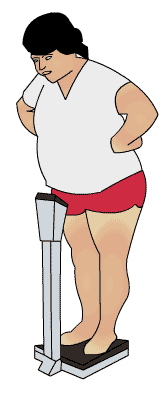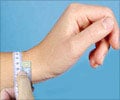Ideal Body Type
"Excess flesh is like excess money –a burden"
How many of us are happy with the way we weigh? Not many, as most of us have some weighty reason to fret about. Be it a bludgeoning belly or an ungainly torso, the flab has been a source of misery for many a life on earth.
In our day-to-day lives, we meet people who are burdened with a body they can no longer cope with. Prosperity in life often heralds a sedentary lifestyle and this can push a person towards a diseased existence.
Common sense demands that we keep a weight watch at least to a level where normal activities remain unaffected and the fun is not sapped out of our lives. This vigil would also minimize the potential risk of developing a life–threatening disease, decrease discomfort and keep our self-esteem intact.
Lean is Not Mean
Is there an ideal body weight? Actually, no! And that is because the body type of each individual varies. It is common to see people of the same age and height with different body weight.
Our body is made up of fat tissues also called adipose and 'lean' tissues such as bones, muscles and other organs. The lean tissues are metabolically active while the fat tissues are not. A person's weight as seen on a weighing scale may not say much with regard to the fat-lean ratio. Some individuals tend to be more toned and muscular while others are flabby and look obese.
The normal weight of a person and lean-fat ratio may vary with – age and gender and even race. In a normal person – the percentage of body weight is as follows:
- For an adult male - the average body fat is 15-18 percent.
- For adult women - the average body fat 22-25 percent.
If the body fat percentage is above 25 in men, and 32 in women, it can lead to several physiological complications.
Thin Not 'In'
Being thin or underweight is definitely not in, at least in sensible circles. While much has been said and written about the obese, there are serious medical conditions that plague the thin too. Nutritional deficiencies in these individuals often lead to-
- Amenorrhea
- Hormonal imbalances
- Eating disorders
- Reproductive disorders
- Fractures
- Osteoporosis and
- Other complications involving the renal, gastrointestinal and central nervous system.








